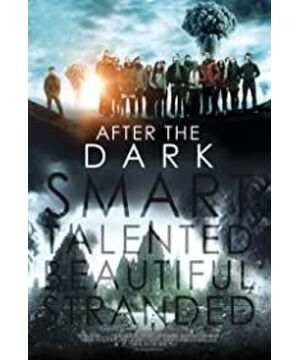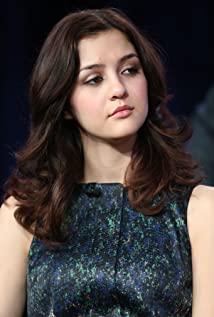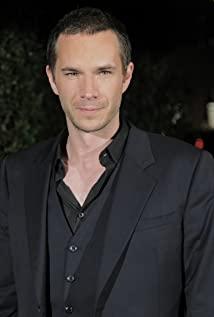In The Doomsday Philosopher, a philosophy teacher leads 20 students in their last class before graduation. In this class, the teacher forced the students to conduct a thought experiment. The experiment assumes that the students are at the site of a nuclear explosion with their teacher, and that nuclear radiation will soon reach them. There is a nuclear-proof site near them where they can take refuge, but the resources and oxygen in the site are only enough for 10 people to survive for a year, and the influence of the nuclear explosion will last for another year. This determines that only half of the people will survive. At this point, the teacher asked the students to draw random identity and skill cards to determine their role in the experiment, and to use this information to vote on which 10 people deserved to survive. Among the roles of these students are farmers, electricians, poets, doctors, etc. The poet character was shot by the teacher before the vote had even begun, because his skills were irrelevant to the continuation of the human race. Following the logic of the teacher's rationalism, the students began their voting. Similar experiments were carried out three times in total, the first time they failed, they did not survive. In the second experiment, the students found some additional conditions on the back of the cards about their characters, and because of these additional conditions, the results of the vote were slightly different from the first time, but they still failed. In the third experiment, a student obtained the adjudication power with the consent of everyone, and chose 10 people who should survive alone. As for the result of the choice, some people think it is a success, and some people don't think so.
When voting on an individual's right to exist, the teacher's logic follows rationalism, and he will rationally analyze which roles will have an effect on the continuation of humanity. As his students, they also naturally follow the teacher's pace to make choices and determine the value of each person. But for the audience, the answers are believed to be more diverse. Ultimately, it depends on how each person judges a person's worth based on their own values. Does the value of this human depend on his occupation, character, appearance, or something else? Personally, I think it depends on what the premise of the thesis is. If the ultimate goal is to continue the human race, it should maximize various survival and construction skills and ensure the probability of fertility. The pure rationalism of the teacher is most appropriate under this premise. What poets, sommeliers, etc. must indeed be discarded. But if the premise is to maintain the dignity and humanity of human beings, I will choose to let everyone live in the shelter for half a year, and then face death without any guilt and dare to face their own souls.
Since I have a very strong personal interest in philosophy, this film was especially wonderful for me. The direct presentation of philosophical themes through cinema is fascinating. From the very beginning of the film, this approach is eye-catching. The teacher presents each topic by asking the students what their favorite philosophical topic is. One student said his favorite was the "infinite monkey theorem", and the camera followed the student's explanation of the topic to a monkey sitting in front of a typewriter typing, surrounded by a vast universe to express the concept of "infinity". The film also shows classic philosophical themes such as the "Trolley Problem" and "Ignorance is the Blessing Paradox". Whether or not the audience is familiar with these topics, there will be a lot of visual and intellectual satisfaction from them. Subsequent thought experiments also put the experimenters in real-world settings to express their practices and choices. This approach brings philosophical conundrums to life and allows students and audiences to be more careful in their choices.
The greatest charm of philosophy is its discernibility. Everyone has the right to defend their ideas, of course, this does not mean that every idea is correct. The film has a certain bias in different values, which does not prove that the ideas supported by the film are correct. After watching this movie, what values do you find yourself leaning more towards?
View more about After the Dark reviews











